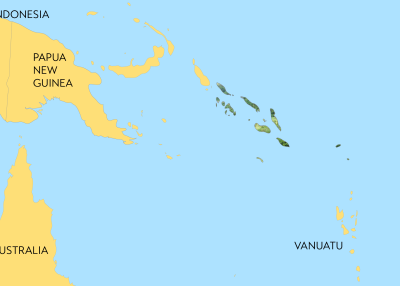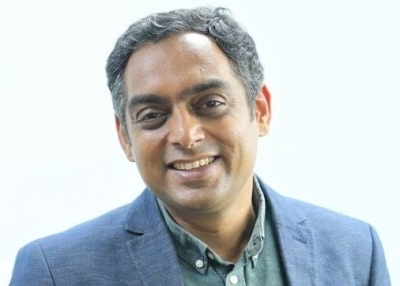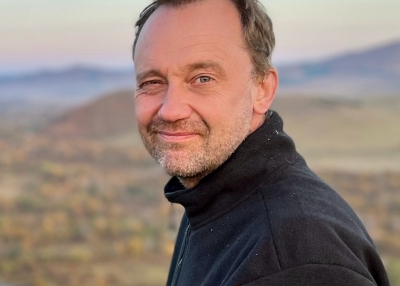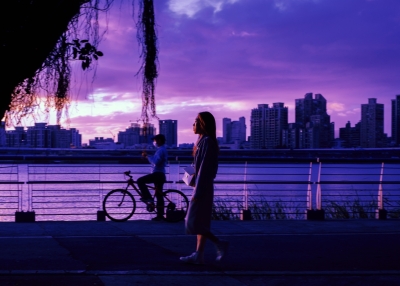The Solomons' Greatest Show Ever
The on the ground impact of China - U.S. competition in the South Pacific
BONUS EPISODE
Things are heating up in Solomon Islands. The South Pacific island nation of 700,000 people is gearing up to host its greatest event ever: the 2023 Pacific Games. China has built and financed most of the venues for the games, while Australia paid for dormitories for the 5,000 athletes from 24 countries, and Japan is improving the roads. All this, as the U.S. reopened its embassy after 30 years, to counter growing Chinese influence in the region.
In this bonus episode, hear from two Solomon Islanders on what it's like to be wooed by multiple powers. Dorothy Wickham is a veteran journalist from the Solomons. Jay Bartlett is a leading local entrepreneur, served as chairman of the country's Chamber of Commerce, and sits on the board of the central bank.
In February 2023 they spoke with Simona Grano, associate professor at the University of Zurich and frequent contributor to programs at Asia Society Switzerland, as part of our online series A Closer Look. This is an outtake of that conversation.
Watch the full conversation on our website, where you'll also find more information on the speakers.
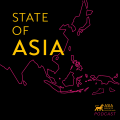
STATE OF ASIA podcast
Season 5, bonus episode 1 – published October 10, 2023.
Host/Producer: Remko Tanis, Programs and Editorial Manager, Asia Society Switzerland
Find previous and future episodes here, on Spotify, Apple Podcasts, Google Podcasts, or search for 'State of Asia' in any other podcast app. We're also on YouTube.
Transcript
00:00:03 Remko Tanis
From Asia society Switzerland, this is State of Asia. I'm Remko Tanis.
00:00:18 Remko Tanis
In this episode, we take you to the Solomon Islands.
The island nation in the South Pacific, is gearing up to host its biggest event ever, the 2023 Pacific Games.
00:00:36 Remko Tanis
That's the official song of the Games.
00:00:38 Remko Tanis
It will see 5000 athletes from 24 Pacific countries compete in 24 sports across venues mostly built with aid from China.
00:00:47 Remko Tanis
Not too long ago, the Solomon's Prime Minister Sogovare and the Chinese ambassador officially opened the National Stadium, the main venue for the games entirely built by China.
00:00:57 Remko Tanis
Here's the Prime Minister addressing the Chinese ambassador at that occasion.
00:01:10 Remko Tanis
I cannot thank you and your government enough, the Prime Minister said. And according to this report from Chinese state media, the 700,000 Solomon Islanders couldn't be more grateful to China for building infrastructure, a hospital wing, a university building, and enough Huawei mobile antennas to cover the spread-out island nation with the most reliable cell network has ever had?
00:01:32 Voice Over
Infrastructure development is picking up pace in Honiara, the capital of Solomon Islands. Many locals are expressing their gratitude, saying they have significantly benefited from China-built projects, among which is the 2023 Pacific Games Stadium project.
00:01:51 Interviewee 1
It is something that we Solomon Islanders will appreciate and are grateful for. In the past, we don't have any facility of this magnitude.
00:02:02 Voice Over
Built by China Civil Engineering, Construction Limited, the new stadium serves as the venue for the 2023 Pacific Games, which will be hosted by Solomon Islands later this year. The project employees as many as over 700 locals who have also received training courses to enhance their skills and expertise.
00:02:23 Remko Tanis
China's generosity kicks into high gear after Solomon's Prime Minister Sogovare in 2019, to the surprise of pretty much everyone, switched his country's allegiance from Taiwan to the People's Republic as being the true China. Last year, Solomon Islands signed a security pact with Beijing, of which details remain unknown.
00:02:42 Remko Tanis
This deal could allow China to gain a military foothold in the South Pacific, the United States and other powers have since stepped up their engagement with the Solomons and other Pacific island nations.
00:02:53 Remko Tanis
Earlier this year, the US reopened its embassy in Solomon Islands, which had been closed 30 years ago. Recently, it also announced the opening of brand-new embassies in two other Pacific nations, the Cook Islands, and Niue.
Here at Asia Society Switzerland, we spoke with two Solomon Islanders about what it's like to live in a country that's on one of the front lines of the great power competition between the US and China. How does it feel to have the world's most powerful countries compete for your affection? Do people in the Solomons actually profit? We wanted to replay some of that conversation today as the Solomon Islands are really getting ready now to put on their greatest show ever and as competition between China and the US in the Pacific and elsewhere has continued to intensify over the past year.
00:03:30 Remko Tanis
You'll hear from Dorothy Wickham, a highly experienced journalist from the Solomons and a trusted voice on all things happening in the Pacific and from Jay Bartlett, a leading entrepreneur from the island nation, who has led the country's Chamber of Commerce for eight years and is a member of the board of the central bank.
00:03:52 Remko Tanis
For this conversation they spoke with Simona Grano, associate professor at the University of Zurich, an expert on China and Taiwan and frequent contributor to events at Asia Society Switzerland.
00:04:03 Remko Tanis
Simona starts by asking Jay what the impact of hosting the Pacific Games is on the ground in the Solomons capital, Honiara.
00:04:11 Simona Grano
This November, Solomon Islands will host the Pacific Games with about 5000 athletes from 24 countries. The biggest sporting event that the country has ever hosted and in a previous conversation with us, you actually said that that we should compare this to the impact that hosting the Olympics has on bigger countries, for instance.
00:04:30 Simona Grano
And of course, these always come with a lot of new infrastructure and building projects, right? So, can you tell us a little bit how and if these Games are changing the face of Honiara and what kind of opportunities does hosting the Pacific Games actually bring for local companies? Construction companies, but also for local people?
00:04:49 Jay Bartlett
It's probably similar to an advanced nation hosting the Olympics for us in Honiara. I mean, I think broadly in terms of the timing, the Games has been good.
And that's in a sense where it offers a focal point for our development, and it gives us a time that things should be done. So, we know in November this year, we're going to be hosting the Pacific Games and showcasing our nation and that gives us a sense of urgency about how we go about our business.
00:05:21 Jay Bartlett
In terms of the impact for local construction companies, I would probably say that the impact is mixed. There's definitely a lot of construction happening in Honiara. So, if you travel to Honiara at the moment, that's definitely one thing that will hit you and that's one thing that you'll notice is there's.
00:05:40 Jay Bartlett
A lot of building. There's a lot of construction happening, but a lot of construction that is happening at the moment is bilateral and so these types of projects generally go back to large contractors.
00:05:56 Jay Bartlett
They bring a lot of their own workers, and they mobilize and build these big, big projects, so there's not much, I guess that is shared into the local economy. We have local construction workers, but a lot of them, in my opinion, are only providing labor unskilled labor. And so, there's minimum skills and knowledge transfer in this process and I think we should probably look at the way that you know aid is delivered especially for infrastructure and it really should be multidimensional.
00:06:32 Jay Bartlett
To be benefit of the infrastructure itself that's built, that's something that we're really grateful for as a country, but we should also be in the process developing our, our capability and capacity.
00:06:44 Jay Bartlett
You know, otherwise you know it's a really big, missed opportunity and I think one way that you know we can make this happen is through policy and legislation, because if there's no policy or legislation to ensure that local contractors and the local economy is involved, it's left to best endeavors.
00:07:05 Jay Bartlett
And when it's left to the best endeavor, it probably won't happen. There has to be a deliberate framework that's put in place that ensure that these benefits are downstream. So, I mean, I think, you know, I think we'd like to see more happen in terms of the workflow into local businesses, but I guess due to the nature of the funding and due to the scale of these projects, that hasn't been probably as much as we have liked.
00:07:33 Jay Bartlett
And as we're getting close to the Games now, I think the government is really focused on ensuring that the games are hosted successfully. So, it's just all about making sure that things are delivered on time at the moment.
00:07:44 Simona Grano
China is quite busy as well in the run up to the Games that we just talked about with Jay, it is actually building 7 venues including the National Stadium which can hold up to 10,000 spectators, and we know that China's Huawei is also putting up cell towers, more or less 161.
00:08:02 Simona Grano
All throughout the Solomon Islands China is also financing the construction of a new wing at the country's main hospital and several more things that we can talk about with you, Dorothy, if you want. But that brings us to the reason why the Solomon Islands started making the headlines across the world, namely, what we hinted at during the introduction, China has increased activities in the country.
00:08:23 Simona Grano
And the worry this creates in Australia, in the US and in their allied partners countries, for example, like Australia and the US, were shocked in 2019 when the Solomons Prime Minister Sogovare, announced that the country would no longer recognize Taiwan or ROC, its official name, but Beijing, as the real China, and this immediately opened up the gates of Chinese aid and investment to the Solomon Islands.
00:08:48 Simona Grano
The decision to switch allegiances from Taipei to Beijing actually baffled many in the West.
Especially when in May, last year's Solomon Islands once again was in the spotlight because it signed a security deal with China, which could allow Beijing to station troops on the island and thus give China the factor and military foothold in the South Pacific. And now I come to the question for you, Dorothy, you wrote an article in the New York Times, and you wrote, can you blame us for turning to China? Can you tell us what you wrote in that piece and maybe also, what were your arguments?
00:09:20 Dorothy Wickham
I was reflecting on how Solomon elders and maybe our leaders were thinking at the time, as Jay had said, you know this country, we've really struggled to get ourselves, you know positioned amongst the other Pacific island countries and if you land here in Honiara, you'll see there's an absolute difference in the look even just from the airport down in the Honiara, you'll see there's a big difference from if you land in the other countries in the Pacific.
00:09:49 Dorothy Wickham
And I think there's that sense of urgency. I think that's what I was trying to say in the article. There's a sense of urgency amongst our political leaders who wanted change. They wanted growth and they wanted it fast, and they wanted it during their term while they're sitting in in power.
00:10:10 Dorothy Wickham
And also, we have a huge youth population, who were also getting impatient and saying, you know, the government wasn't doing anything. Our hospital is the same hospital we've had for the last, what, 20-30 years? And our roads are the same and you know, so it. It's that that sense of frustration, that same sense of feeling of being left behind.
00:10:30 Dorothy Wickham
I think was one of the driving keys towards our government making that decision. Of course, there are other reasons why, but I'm talking about what was in the mindset of someone. As you know, Solomon Islanders were quite shocked when this switch happened because nobody was expecting it. We had seen a signboard go up where the current stadium is now. That had a picture of a stadium with the Taiwanese flag on it and that said that the stadium that was going to be built there would be built by the Taiwanese and then how many months later we got pulled down and I was wondering why is that thing going down?
00:11:05 Dorothy Wickham
And then suddenly we switched. And if you compare to what China is building now to what Taiwan was intending to build. There's a big, huge difference in terms of size and also now that you can sense there's a feeling on the ground here that things are happening. You know, the Japanese are fixing our roads.
00:11:22 Dorothy Wickham
I mean, it's a really bad attitude to have. We're expecting always to be to be fixed by our donors. It's not a good psyche, but that's what it is, you know? In my article I was trying to say, this is what was going on before this switch. And I'm pretty sure, I mean, Mr. Sogovare he's been in power for quite a while now. And he’s getting older and I think he also has a sense of frustration in the way the other donor partners are dealing with government and the way assistance is given to the Solomons. You know, we have very deep, very hard times trying to even get export out of this country, it's absolutely clear.
00:11:58 Dorothy Wickham
It's very hard to get export into Australia, even though we're only three hours flight away. So there's so many requirements. I mean, I understand that there's there are national issues for Australia itself in terms of quarantine and all this other stuff, but it's hard to explain some more.
00:12:17 Dorothy Wickham
Sometimes I talk about this and I pause because I think now we sounding like we're asking too much of our friends. But then like I said, because of that, that's why we are now discussing China basically.
00:12:34 Simona Grano
No, I think you did a good job in expressing the sense of frustration, the feeling of being left alone basically right to fend off for yourself among so many difficulties. Let me briefly come back to you, Jay. You were until last year, the chairman of the National Chamber of Commerce. Can you tell me what's the impact on the Solomon business community and on general Solomon Islanders of being wooed by multiple powers simultaneously. Do people actually profit or is it just more infrastructure building and just a few elite profiting?
00:13:04 Jay Bartlett
I think we need to probably just go back to COVID to lead into this discussion because I guess when the borders closed and international borders closed, you know our economy really took a big, big hit like many of the Pacific islands, we all suffered. I guess everyone around the globe did. I'm on the central bank and our data showed that, you know, we had -3.4% growth in 2020.
00:13:28 Jay Bartlett
We came up to -.6 growth in 2021 and then we -3.7% growth in 2022. But in 2023 this year we're forecasted to come up into +2.4% growth and the reason we're coming out into positive growth. Part of the reason.
00:13:46 Jay Bartlett
Is because of the infrastructure spend that is happening in our country and so we we've been quite fortunate that there's been a large pipeline of infrastructure for the Solomon Islands. It's not just bilateral aid. So not just geopolitical aid, this is multilateral aid as well. So we've got a big project like the Tina Hydro, which is a renewable energy project that's happening at the moment.
00:14:07 Jay Bartlett
The Japanese, this is bilateral aid, are funding and International Airport upgrade and they're also upgrading the East Honiara Rd. So that's been happening as well. The Asian Development Bank, ADB, has funded a university upgrade and plus we've got all the Pacific Games facilities which is funded by China. This infrastructure plan has really helped us.
00:14:29 Jay Bartlett
There's also definitely a number of factors of why the economy is to ensure that the money that's spent in the economy and, you know, comes back down into local businesses and a lot of it is spent in the local economy as well as much as we can. You know, we've got our traditional partners like Australia, they've also got their own infrastructure program. So I don't think there's real direct benefit at the moment, but I think over time we should be able to see this create more long term economic benefit and then hopefully that in turn improves the livelihood of our people.
00:15:02 Simona Grano
Dorothy, let's change a little bit the subject and talk about something that is also very often in the media or under the media spotlight concerning not just the Solomon Islands, but in general Pacific nations. Global warming.
00:15:15 Simona Grano
We know that sea levels around Solomon Islands are the fastest rising on Earth and Calais Island, part of the Solomon Islands, is one of the first islands in the world to actually disappear because of climate change. It is now completely underwater and last year, when the BBC interviewed a young woman from the island, what she said, and I quote.
00:15:32 Simona Grano
Our country doesn't contribute that much to the emission of greenhouse gases and global warming, and yet we are the ones facing the destruction arising from it. This is something that people from Western countries did to us, we are facing the consequences of what others have done. So, my question for you would be what are the real on top of the entire island being submerged?
00:15:53 Simona Grano
What are some of the concrete on the grounds affected you notice from this and how are the people dealing with it? But also what is the government doing to address these issues.
00:16:01 Dorothy Wickham
I think one of the issues that I think that we have here is there are only a few of us educated people who know what the issues are the cause and effects later on for us in the future, but I think a lot of I I'd say about 70% or 60% of ordinary Solomoners who are living out there are not really focusing on it because to them they've watched it slowly rise up, they've adjusted to it. They you know, they've tried to ensure that they've moved to higher ground with their gardening.
00:16:33 Dorothy Wickham
They've changed their water sources so, so, so they've adjusted or they've adapted to what's happened. But the clear understanding of why and the politics of it, the international debate. So need that is very much lacking on the ground amongst ordinary Solomon Islanders, and I think this also is a problem for us because I'll go back to what they were saying about all the infrastructure being built and we'll have to wait to see what would be the benefits that would come out of all these improvements. But I keep saying this and I've been saying this for the last thing is.
00:17:06 Dorothy Wickham
If we do not improve education levels in this country, then we are totally going to be left behind and this is our biggest problem in this country is that we really need to make education compulsory and we really need to raise the basic level of education for us to be able to, to debate, to discuss and plan for the future in terms of global warming when we're talking the economy.
00:17:30 Dorothy Wickham
When we're looking at the geopolitical issues of this country, there's only a few people talking 2% fluent in English. Isn't that representative of how many people are educated to that level, that are able to, to maybe discuss issues like maybe Jay and I and other people?
00:17:47 Dorothy Wickham
This, this, this is the fundamental issue. I really feel strong about this, that education is the key now if we want to change anything, whether it's to do with global warming and our choices in politics, our development issues, our economy, it has to come back down to education. You know, I would have really loved to see the millions of dollars being poured into these Pacific Games being poured into our education infrastructure and development.
00:18:12 Dorothy Wickham
And but of course, we voted our leaders in. They are the ones who are who are ruling. They are the ones who are making the decisions, and they chose Pacific Games.
00:18:23 Jay Bartlett
In the Solomons, a classroom is born every day, so there's roughly 30 to 40 children that are born every day and that in itself is not an issue. But it is an issue if you're not building one or two classrooms every day. And I think structurally we have not invested in the last 30 years in infrastructure. We need to cater for this population explosion that we're seeing now. We certainly haven't been building one or two classrooms for the last decades, as far as I know, and so we have a large number of young children, and we don't have enough schools. I think that's probably, you know, quite one of the obvious ones in terms of access to education.
00:19:03 Simona Grano
There have been several multiple occasions in the past in which the Chinese community locally was targeted in violent unrest. For example, in 2006, much of Honiara's Chinatown was destroyed after allegations surfaced that the Prime Minister had used money from Chinese businesspeople to bribe members of the parliament, and that large sums of money were being funneled to China. Beijing evacuated citizens from the Solomons back then, and three years later, And thirteen years later, in 2019, after the Solomons switched from Taipei to Beijing, Chinatown was looted again. So, in November 2021, Chinese settlers, who own many of the small retail outlets in Honiara, were again the targets of writers. So, my question for you would be what is behind there?
00:19:52 Simona Grano
We always talk about Chinese influence in the scale of, you know, global geopolitics, security issues and influence on the country. But is there also on the ground, at the level of the population, resentments targeted against Chinese presence on the islands, or how would you see this?
00:20:11 Jay Bartlett
I mean, I think to be honest, there's probably a, you know, a few underlying issues that contribute, you know, to the unrest. And just like any issue it's, you know it's quite complex, but I guess there are a few fundamentals for me that are really important when we discuss this.
00:20:27 Jay Bartlett
And you know, and one of these things, you know, Dorothy has shared, and you know me myself as a young Solomon Islander which you know, I have concern about is the population we have 70% under 30 and that's a very, very large youth bulge. And if you look at unemployment around the country you know you've got a young population and you've got high unemployment. So, we've got a fast-growing population and we've got large unemployment. It can go two ways. We can have a demographic dividend if we utilize this population properly
00:20:59 Jay Bartlett
and we're able to create jobs, it's a good thing, you know, we can drive economic growth with our young population, but if we don't have jobs and opportunities, then what we have is a demographic time bomb. And I think what we see every now and then happening is this time bomb just letting off a little bit of steam.
00:21:19 Jay Bartlett
We also have growing inequality, income inequality. You know, we have a foreign minority. Yes, we have a Chinese population in the Solomon Islands, and they dominate the retail business front. There is going to be growing resentment regardless of the race. I think there is going to be growing resentment and we have also local businessmen, Chinese businessmen, you know, sometimes that take advantage of weak institutions and that just furthers this resentment. You know, there is probably a number of factors that contribute to social instability and unrest. But when you have a dry box of firewood, you know any spark can start the fire.
00:21:56 Dorothy Wickham
Despite whatever we say and we do, and whether China is here or not, China is building huge infrastructure, pouring huge money to this country. This country is a democratic country. That's the basic baseline and and China must also realize that if they have they, if they have to deal with us and deal with this properly then they go they have to understand that that.
00:22:16 Dorothy Wickham
Our institutions must be protected. The government that sits in power now that they are friends with, was elected in. What if tomorrow people change their minds because of frustrations about what government is doing. Then it'll change the whole picture again.
00:22:30 Simona Grano
China is, of course, as we know, not only providing infrastructure to the Solomon Islands, but also armament, for example, for the local police forces, right mainly for riot control. How does the local population interpret this? Does it think that it is making the situation safer in case of future riots or are there actually worries that this could actually add fuel to the situation?
00:22:52 Jay Bartlett
I mean I think it's probably a combination of both. I think it might add fuel to the fire. And at the same time, you know it, it is about trying to kind of manage these social situations that I get out of hand every now and then. So, I guess it's hard to know the intention behind that, but certainly you know, security has become more front and center a concern about the government and especially in making decisions that are not always popular, you know they could be preparing for some of these decisions that have been made.
00:23:26 Remko Tanis
That's all for this special edition of State of Asia. Hear more from Simona Grano, who is also a senior fellow at Asia society Policy Institutes Center for China Analysis. In our next episode, she'll discuss the dimensions of cross Strait relations between Taiwan and mainland China and talk about Taiwan's presidential elections taking place in January of next year.
00:23:47 Remko Tanis
Search for State of Asia in your favorite podcast app and be sure to subscribe. The entire conversation with Dorothy Wickham and Jay Bartlett on the Solomon Islands is available as a video on our website. A link is in the show notes. I hope you enjoyed this episode. We're always open to your feedback and ideas, so drop us a line, send an e-mail to Switzerland at Asia society dot org. Information on our many other activities like our upcoming flagship State of Asia conference taking place November 22nd in Zurich is on our website, asiasociety.org/switzerland.
00:24:22 Remko Tanis
My name is Remko Tanis. Thanks for listening.

